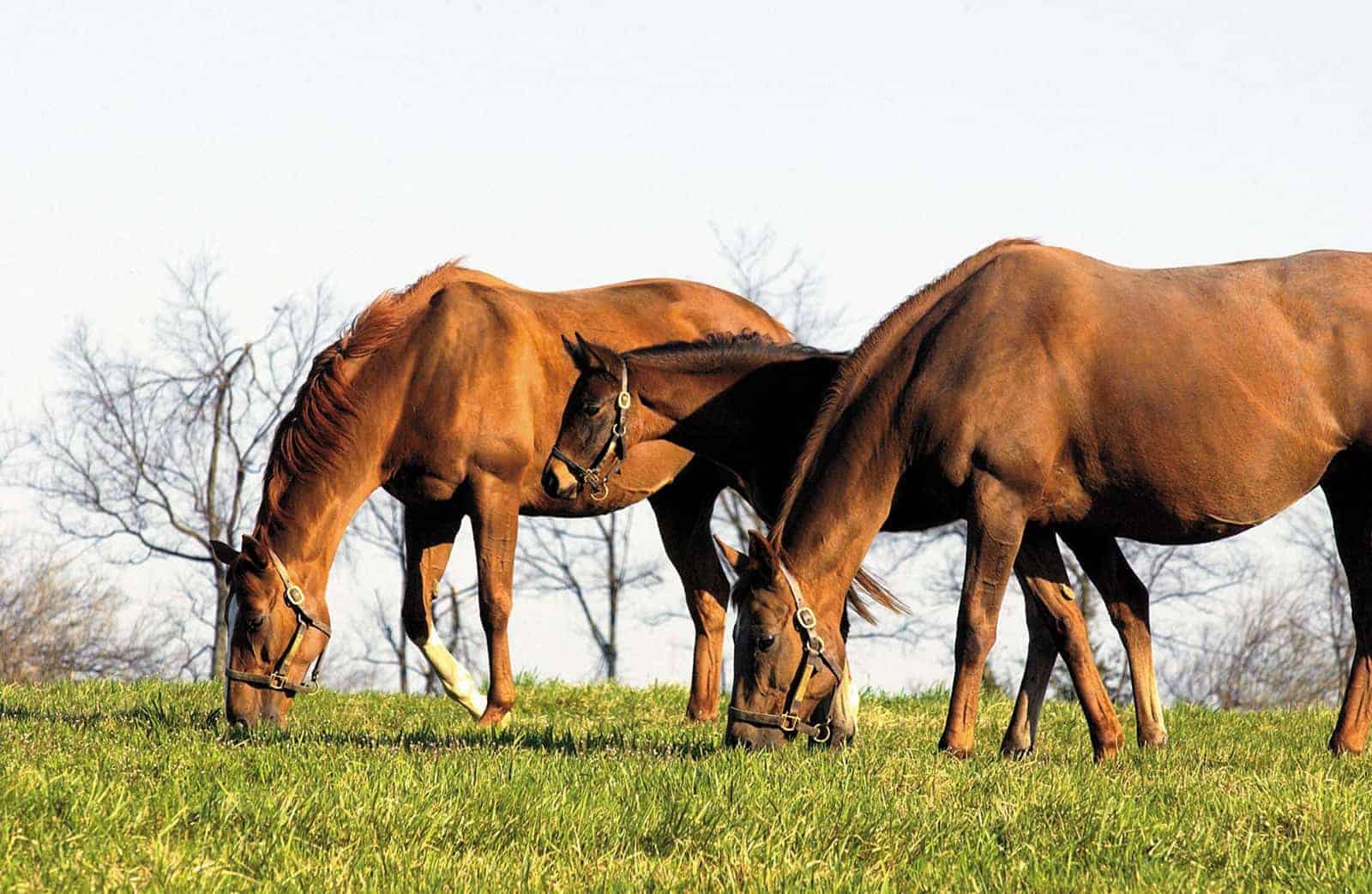Healthy Broodmares Can Shed EHV-1 Vaginally

Equine herpesvirus-1 (EHV-1) is a highly infectious disease that can cause respiratory and neurologic signs in adult horses, as well as abortion in broodmares. Even without clinical signs of disease or evidence of the virus in the blood (viremia), horses can shed the virus and, thus, spread it via nasal discharge and aborted placental tissues and fluids. Perhaps introducing yet another biosecurity challenge, veterinarians recently determined mares can shed the virus via the vagina, too.
One of the challenging parts of preventing EHV-1 spread is this latent spread of infection—apparently healthy horses shedding the virus without ever showing clinical signs or developing viremia. That’s why Carina Cooper, DVM, a pathobiology PhD candidate at the University of Guelph’s Ontario Veterinary College, in Canada, set out to confirm the suspicion that healthy mares could be shedding EHV-1 vaginally—putting their foals and barn mates at risk of infection. She presented her study findings at the 2018 American Association of Equine Practitioners Convention, held Dec. 1-5 in San Francisco, California.
In her study Cooper aimed to not only determine the prevalence of EHV-1 in healthy broodmares but also examine the effects of vaccinating them against the virus while pregnant. She evaluated 385 healthy broodmares of various breeds from 45 farms across Ontario, collecting blood samples and nasal and vaginal swabs every two months throughout the course of the 2016-2017 breeding season
Create a free account with TheHorse.com to view this content.
TheHorse.com is home to thousands of free articles about horse health care. In order to access some of our exclusive free content, you must be signed into TheHorse.com.
Start your free account today!
Already have an account?
and continue reading.

Written by:
Alexandra Beckstett
Related Articles
Stay on top of the most recent Horse Health news with












